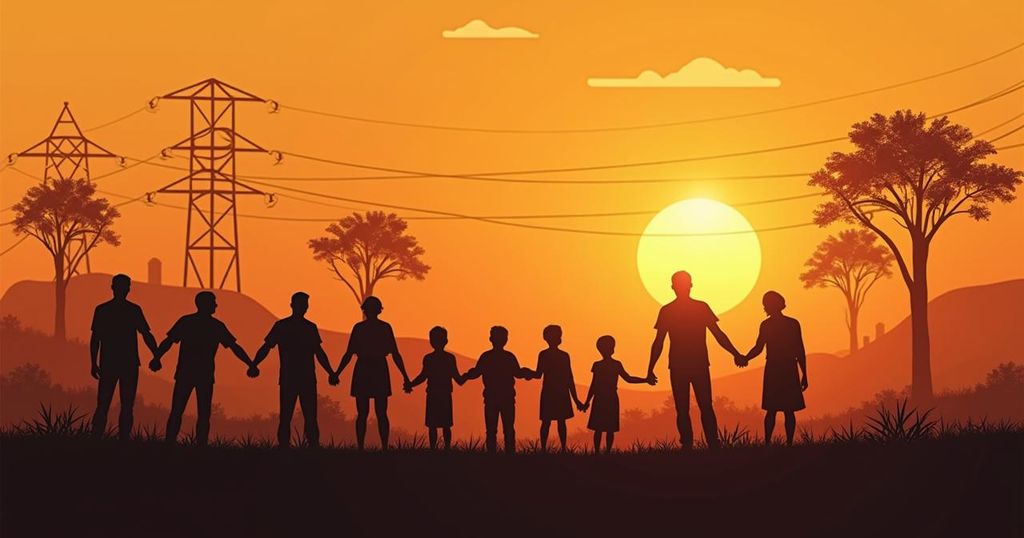The Rise of Solar Power Companies in Africa: Bridging the Electricity Gap
Solar power companies are rapidly expanding in Africa, addressing the electricity deficit faced by 600 million residents. These enterprises provide various solar solutions, contributing to global renewable energy targets and improving the lives of those previously reliant on kerosene. Notable examples include Easy Solar in Sierra Leone and Altech in the Democratic Republic of Congo, which have delivered substantial benefits to local communities.
In Africa, where approximately 600 million individuals lack access to electricity, solar power companies are experiencing rapid growth. These firms, primarily founded by Africans, operate in regions where people are largely disconnected from the power grid. They offer a variety of products, from affordable solar-powered lamps priced under $20 to advanced home systems that facilitate the use of kitchen appliances and televisions. The electrification rates in Central and West Africa remain alarmingly low; for instance, West Africa registers rates as low as 8%, leaving 220 million residents without electricity. Many inhabitants resort to using costly kerosene, which poses health and safety risks due to fumes and fire hazards. Recent international commitments aim to increase renewable energy generation by 2050. Given Africa’s minimal carbon emissions, solar energy emerges as a viable, cost-effective solution for electricity provision. The International Energy Agency underscores that, although progress is being made, substantial investment is crucial to ensure all African homes and businesses receive electricity by 2030. Among the companies gaining recognition for their growth is Easy Solar, which provides solar power solutions in Sierra Leone and Liberia. Co-founder Nthabiseng Mosia, inspired by personal experiences with unreliable power, embarked on this venture in 2016. Today, Easy Solar has connected over one million people to electricity, significantly improving quality of life in various communities. Another notable entity, Altech, operates in the Democratic Republic of Congo, where fewer than 20% of the population has electricity access. Co-founders Washikala Malango and Iongwa Mashangao, who faced energy struggles during childhood, founded Altech in 2013. With a commitment to reaching underserved populations, Altech has sold over one million solar products, transforming the lives of many who have never previously had reliable power. Their innovative business model includes remote management of power usage, which has contributed to a repayment rate exceeding 90%.
The movement toward solar energy in Africa addresses a critical gap in energy access for the continent’s population. While the continent itself is known for its vast solar resources, obstacles such as low electrification rates, reliance on hazardous fuels, and insufficient infrastructure pose significant challenges. Countries in Central and West Africa face acute energy deficits, prompting local entrepreneurs to fill this void with renewable energy solutions. Their work aligns with global climate goals, particularly the push for increased renewable energy capacity by 2050, as they aim to provide affordable and accessible power to millions without electricity.
Solar power companies are playing an essential role in improving energy access in Africa, where millions still suffer from a lack of electricity. By providing innovative and affordable solutions, these businesses are overcoming significant infrastructure challenges and contributing to global renewable energy goals. Companies like Easy Solar and Altech exemplify the effectiveness of local entrepreneurship in addressing energy needs while also promoting sustainability. With continued investments, it is feasible for all African homes and businesses to gain access to essential power by the year 2030.
Original Source: www.washingtonpost.com




Post Comment